- How to Get Rid of a Wasp Nest?
- How to Get Rid of Wasp Nest in Ground UK?
- How to Get Rid of Wasp Nest in Roof?
- How to Get Rid of Wasp Nest in Wall?
- How to Get Rid of Wasp Nest in Brick Wall?
- How to Get Rid of Wasp Nest in Roof Eaves?
- How to Get Rid of Wasp Nest in Ground?
- How to Get Rid of Wasp Nest in Shed?
- How to Get Rid of Wasp Nest in Garden?
- How to Get Rid of a Wasps Nest Naturally?
- How to Get Rid of Wasps Outside?
- Summary Table: DIY vs. Professional Wasp Removal
- Conclusion: Taking Back Control from Wasps
- Frequently Asked Questions (FAQs) On How to Get Rid of Wasps
As someone who enjoys gardening, DIY projects, and spending time outdoors, I’ve had more than one run-in with wasps—and trust me, it’s not fun.
Whether it was a hidden nest in the shed, an infestation in the garden, or buzzing intruders under my roof eaves, I’ve learned that knowing how to get rid of wasps properly is essential for peace of mind.
In the UK, wasps are especially active from late spring through early autumn, and they can quickly go from a nuisance to a full-blown safety hazard—particularly if someone in your household is allergic to stings.
While I’m all for letting nature be, there are times when removing a wasp nest becomes unavoidable.
In this comprehensive guide, I’ll walk you through everything I’ve done and learned about dealing with wasps in different parts of the home and garden.
From DIY removal methods to knowing when to call a professional, here’s my personal guide to safe and effective wasp control in the UK.
How to Get Rid of a Wasp Nest?
Before doing anything, I always make sure to identify whether the nest is active or abandoned.
An active nest will have constant wasp traffic in and out—usually early morning and late afternoon are the best times to observe this.
What Is the Best Time of Day to Tackle a Nest?
The safest time to approach or remove a wasp nest is late evening or very early morning when the wasps are less active and inside the nest. I always wear protective clothing and keep escape routes in mind.
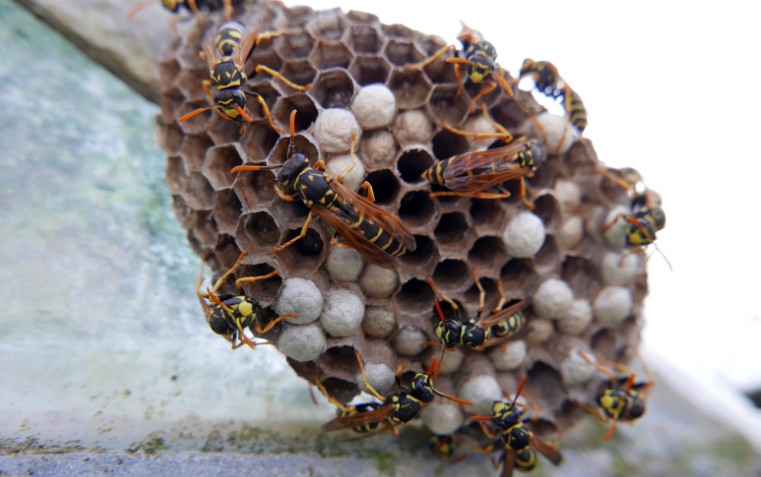
What Are the Personal Safety Precautions I Always Take?
- Wear long sleeves, gloves, and a face shield or goggles
- Keep children and pets far away from the area
- Never stand directly under a nest
- Always have an exit plan in case things go wrong
How to Get Rid of Wasp Nest in Ground UK?
When I discovered a wasp nest in the ground near my compost bin, I was initially unsure how serious it was. But the activity level quickly increased, and I knew I had to act.
How I Dealt with It?
- Identified the entry hole by watching flight patterns
- Waited until evening when all wasps were inside
- Sprinkled insecticidal dust into the entrance hole
- Covered the area with a clear bowl (traps them inside)
Within a couple of days, the activity stopped completely. Ground nests can be risky—especially if disturbed—so if you’re unsure, I recommend calling a professional.
How to Get Rid of Wasp Nest in Roof?
I once had a nest in the loft insulation, discovered during summer when I heard buzzing in the ceiling.
What I Did?
- Located the external entry point near the fascia
- Sprayed long-range wasp foam spray from a safe distance
- Blocked the entrance 48 hours later with sealant
Roof nests are tricky because of the confined space and fire risk with aerosols. If you’re not confident, don’t take the risk—get a pest control expert involved.
How to Get Rid of Wasp Nest in Wall?
Wall nests are among the hardest to deal with, especially if they’re in a cavity or behind cladding.
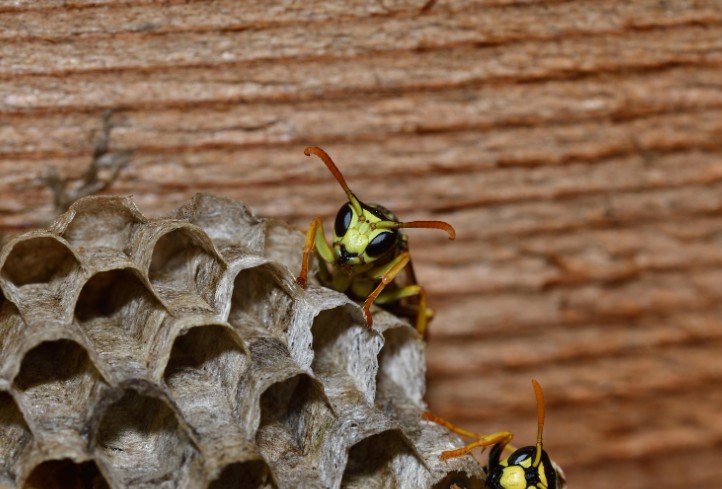
What Is My Experience?
- Heard buzzing from the living room wall
- Confirmed it with a thermal camera I borrowed
- Used insecticidal dust in the exterior vent hole
Do not block the entry point until you’re sure the nest is inactive—trapped wasps may find their way indoors, which happened to me once.
How to Get Rid of Wasp Nest in Brick Wall?
Brick walls often have small mortar gaps or weep holes that make perfect entry points for wasps.
What I Found Effective?
- Inserted wasp dust into the entry holes
- Hold by 2 days before sealing with mortar or caulk
- Checked for lingering wasps before closing off completely
Brick wall nests may look harmless, but they can expand inside the structure, so don’t ignore them.
How to Get Rid of Wasp Nest in Roof Eaves?
The most common place I’ve found nests is in the roof eaves—especially where fascia boards meet brickwork.
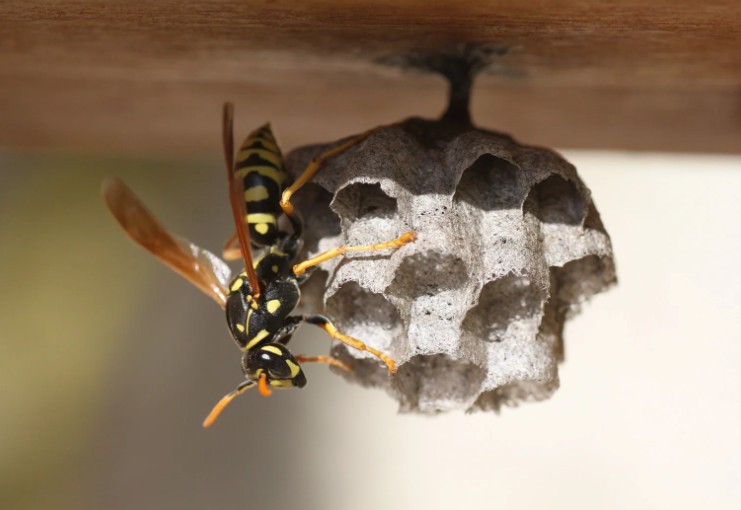
How I Removed It?
- Used an extendable wasp spray
- Applied at dusk
- Wore full protective gear
- Sealed the gap with mesh to prevent return
Wasp nest in roof eaves can spread very huge if ignored—so the sooner you act, the better.
How to Get Rid of Wasp Nest in Ground?
This may seem like a repeat, but nests can appear in lawns, borders, and even compost heaps, so it’s worth reiterating.
What Are My Tips?
- Don’t stomp or poke the hole—wasps will swarm
- Pouring boiling water doesn’t work and is inhumane
- Use specialised wasp powder like Nippon or Rentokil
How to Get Rid of Wasp Nest in Shed?
I spot a nest once in the neck of my wooden shed roof beam.
What I Did?
- Waited until dark
- Sprayed foam directly into the nest
- Removed the inactive nest after 3 days
- Hung peppermint oil sachets to prevent future nesting
Sheds are popular for wasps due to undisturbed spaces—check them regularly in summer.
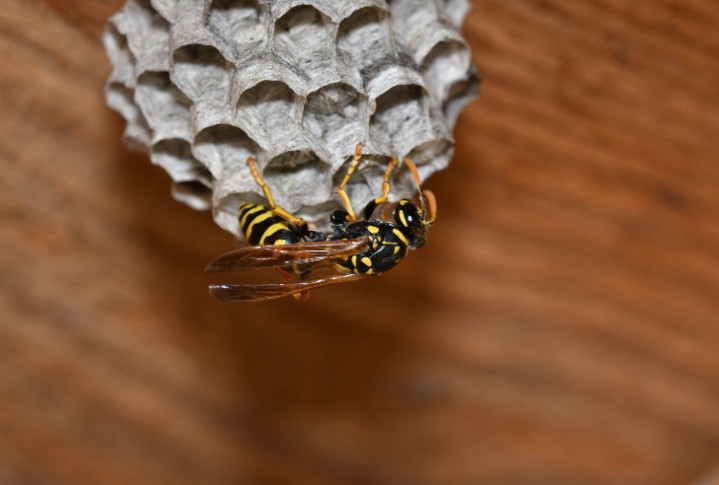
How to Get Rid of Wasp Nest in Garden?
Wasps are incredibly resourceful—mine nested in a low shrub one summer.
What Worked for Me?
- Sprayed the nest at dusk using foam insecticide
- Wore full PPE
- Trimmed the bush after removal
- Installed fake wasp nests nearby to deter new colonies
How to Get Rid of a Wasps Nest Naturally?
If you want to avoid chemicals, here are natural remedies I’ve tried.
What Are the Natural Remedies I Used?
- Peppermint oil + water spray (strong deterrent)
- DIY wasp trap: Sugar water, vinegar & washing-up liquid in a bottle
- Clove, lemongrass & geranium oil mix for spraying outdoor furniture
These methods don’t always kill the nest but help reduce activity if used early.
How to Get Rid of Wasps Outside?
Sometimes it’s not about a nest—it’s about too many wasps flying around.
What I Do to Keep Wasps Away Outdoors?
- Keep bins sealed tightly
- Avoid sweet food & drink outside
- Hang fake nests to deter colonisation
- Use citronella candles or peppermint diffusers
Wasps are attracted to protein early in summer and sugar later—adjust your strategy accordingly.
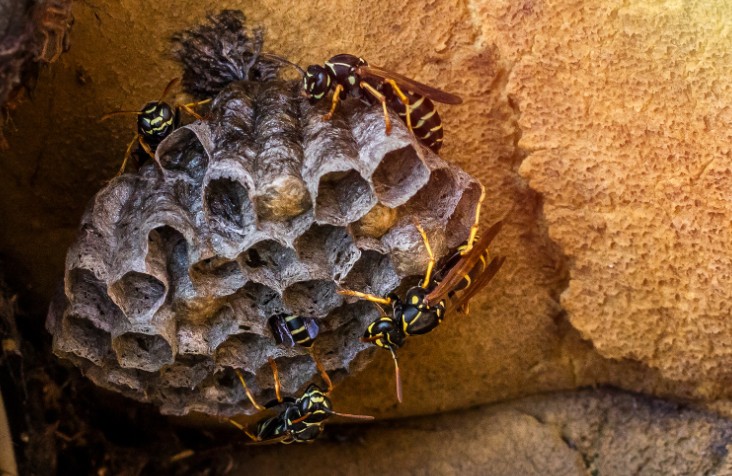
Summary Table: DIY vs. Professional Wasp Removal
| Situation | DIY Safe? | Pro Recommended? | My Verdict |
| Small garden nest | Yes | No | DIY worked well |
| Wasp nest in wall cavity | No | Yes | Called a pro |
| Roof eaves with large nest | No | Yes | Too risky to DIY |
| Ground nest under decking | Maybe | Yes | Tried DIY, called pro |
| Visible nest in shed corner | Yes | No | DIY safe |
Conclusion: Taking Back Control from Wasps
Learning how to get rid of wasps has been a real journey for me. I’ve had to deal with them in just about every place you can imagine—roof spaces, walls, gardens, and sheds.
What I’ve learned is that early detection, the right tools, and safety awareness are key.
Not every situation calls for a pest control expert, but when in doubt, I never risk my safety. Wasps are aggressive when disturbed, and their stings can be dangerous.
Whether you’re trying a natural method or going full DIY with sprays and dust, always have a plan—and respect the power of these small but mighty insects.
Frequently Asked Questions (FAQs) On How to Get Rid of Wasps
1. How do I know if there’s a wasp nest nearby?
I look for regular wasp traffic going in and out of the same spot, often early morning and evening.
2. Will wasps return after nest removal?
They won’t return to the same inactive nest, but they may build nearby if entry points remain open.
3. Is it legal to remove a wasp nest myself in the UK?
Yes, if it’s on your property. But it’s always recommended to call a professional for large or hard-to-reach nests.
4. When is the best time of year to remove wasp nests?
Late spring or early summer is ideal before the nest grows too large.
5. How much does professional wasp nest removal cost in the UK?
On average, between £50–£90, depending on location and nest complexity.

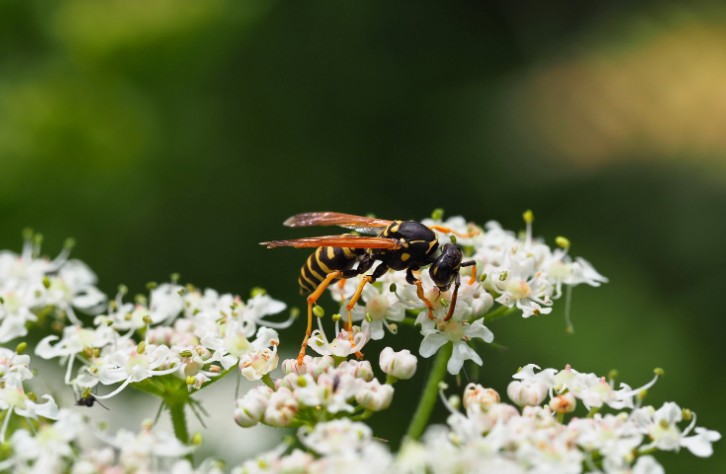
0 Comments